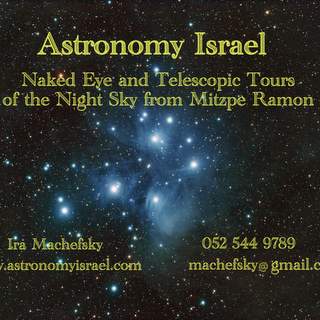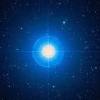
Where does gold REALLY come from?
Started by
Ira
, Jul 17 2013 06:16 PM
31 replies to this topic
#26

Posted 20 July 2013 - 07:50 PM
Given how rare heavy elements are, it has to be surprising that so much of it ended up on earth. Indeed, when I pointed this out in a similar post a while ago, I was assured by all and sundry that it wasn't unusual at all and quite natural and normal.
A short while after that exchange I read another news piece where geologists had come to the conclusion that it was indeed puzzling how much gold there was readily available on earth and posited the bombardment of the planet by gold-rich asteroids at some remote period. Talk about your deus ex machina!
/Ira
A short while after that exchange I read another news piece where geologists had come to the conclusion that it was indeed puzzling how much gold there was readily available on earth and posited the bombardment of the planet by gold-rich asteroids at some remote period. Talk about your deus ex machina!
/Ira
#27

Posted 20 July 2013 - 11:03 PM
A supernova (as I understand it) is an event with a minimum size for the precursor star but a considerable range of stars, maybe a range of 100 times in mass, above that minimum size for supernova?
So is a all one or the other, supernova vs. neutron star collision origin for heaviest metals a bit oversimplified? It seems to me that the size of the event, perhaps nearly as much as the type of event, also determine the extent of heavier element synthesis? Unless the collisions are more common than the largest SN and that is what the study is getting at...
So is a all one or the other, supernova vs. neutron star collision origin for heaviest metals a bit oversimplified? It seems to me that the size of the event, perhaps nearly as much as the type of event, also determine the extent of heavier element synthesis? Unless the collisions are more common than the largest SN and that is what the study is getting at...
#28

Posted 21 July 2013 - 06:10 AM
Do we know how much gold there is on the moon or other planets?
/Ira
/Ira
#29

Posted 06 August 2013 - 11:34 AM
Let's get back into this, again.
The article Ira mentioned has now spawned an editorial in the New York Times.
Is all gold from kilanova (neutron/neutron supernovae)? Really?
Is gold also from ordinary supernova events?
Is gold from any other processes?
Otto
The article Ira mentioned has now spawned an editorial in the New York Times.
Is all gold from kilanova (neutron/neutron supernovae)? Really?
Is gold also from ordinary supernova events?
Is gold from any other processes?
Otto
#30

Posted 06 August 2013 - 02:06 PM
We don't know for certain.
It seems to be that normal supernovae would be far more common than the collision of two neutron stars, so I would think that most of the gold (and other heavy elements) in the universe is probably from normal supernovae. In order for most of it to come from these kilonovae, they would have to show not just that those collisions can produce gold, but that normal supernovae do not produce much gold.
I think the most likely answer is that gold comes from both types of supernovae. I don't think we have enough information to say exactly what percent comes from one type or the other. We would need to know the relative frequency and relative amount of gold produced by each type, and I don't think we know yet.
Jarad
It seems to be that normal supernovae would be far more common than the collision of two neutron stars, so I would think that most of the gold (and other heavy elements) in the universe is probably from normal supernovae. In order for most of it to come from these kilonovae, they would have to show not just that those collisions can produce gold, but that normal supernovae do not produce much gold.
I think the most likely answer is that gold comes from both types of supernovae. I don't think we have enough information to say exactly what percent comes from one type or the other. We would need to know the relative frequency and relative amount of gold produced by each type, and I don't think we know yet.
Jarad
#31

Posted 06 August 2013 - 03:26 PM
A Type II supernova.
#32

Posted 06 August 2013 - 09:08 PM
The problem may be that there are *too many* supernovae of the needed type to produce the observed amount of r-process isotopes (including gold, if we must). Supernovae have until now been where most folks thought the r-process takes place, but there are some (few) now who think the r-process takes place in neutron star collisions. Until now there has not been one actually observed to find this at work, but the paper claims it is likely that the authors have found one and that it shows signs of r-process products.
"r" stands for "rapid".
So people are pretty sure most gold, among other things, comes from the r-process (this going way back to a seminal paper I pointed to earlier, but they are not as sure where the r-process takes place, or if in more than one place, the relative productivity of the places.
One of the authors prattling on about gold is a way for a publicity-hungry person to get his name and face in the press, I think. Saying the same thing about lead or several other more mundane elements would be just as accurate but not as "newsworthy", perhaps?
Some simple info about s and r processes at a Univ. of Texas personal page
"s" stands for "slow"
I hope that's in the ballpark.
"r" stands for "rapid".
So people are pretty sure most gold, among other things, comes from the r-process (this going way back to a seminal paper I pointed to earlier, but they are not as sure where the r-process takes place, or if in more than one place, the relative productivity of the places.
One of the authors prattling on about gold is a way for a publicity-hungry person to get his name and face in the press, I think. Saying the same thing about lead or several other more mundane elements would be just as accurate but not as "newsworthy", perhaps?
Some simple info about s and r processes at a Univ. of Texas personal page
"s" stands for "slow"
I hope that's in the ballpark.






















